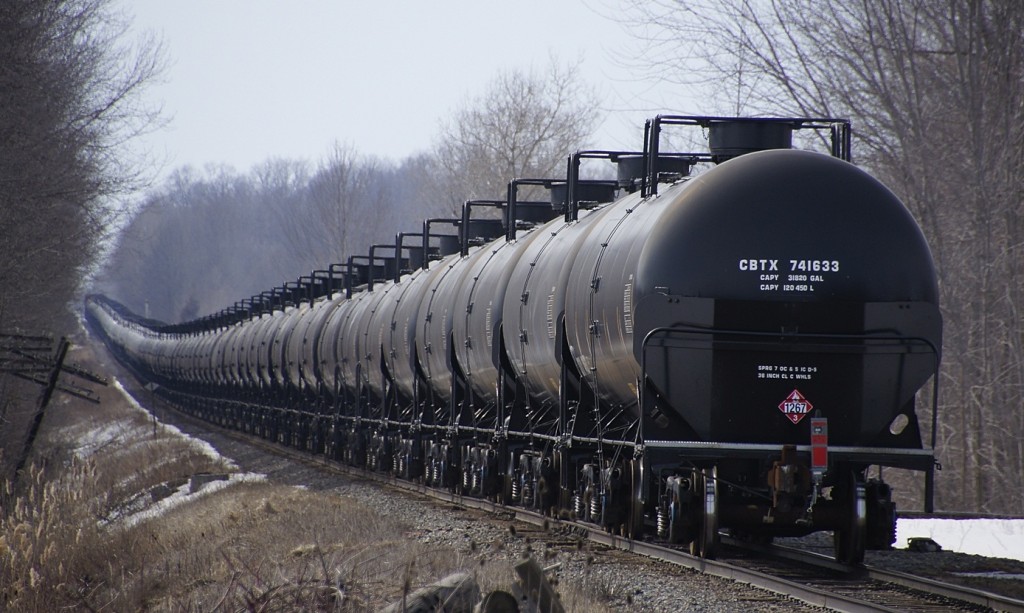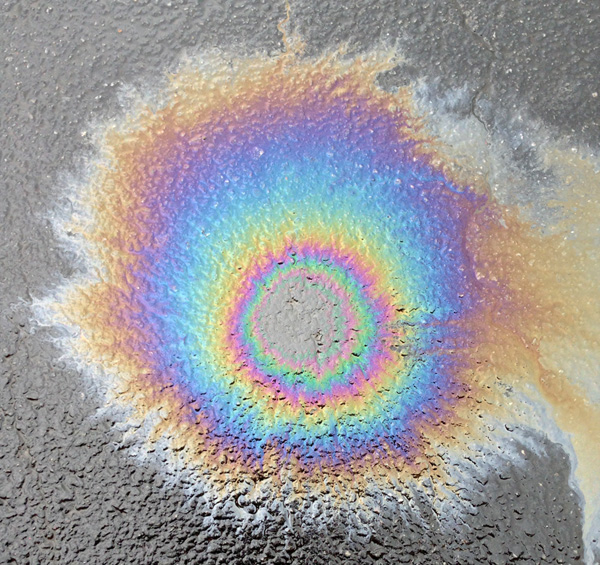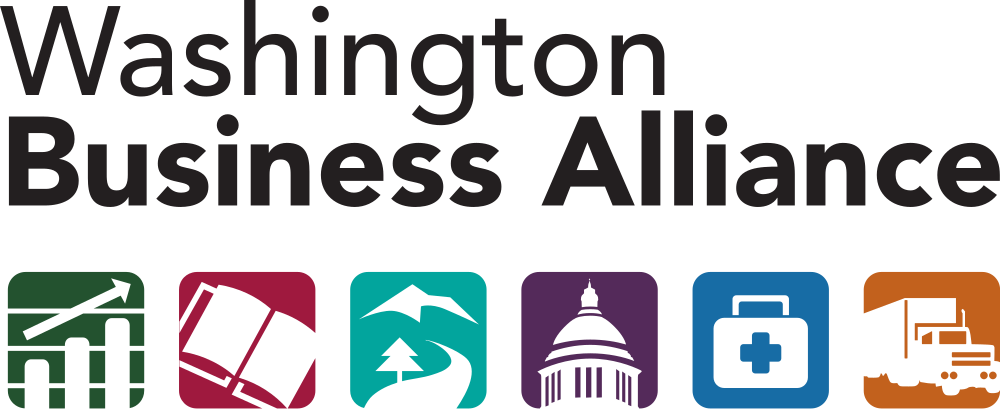This is part of our “Opposing Viewpoints” series. Check out its counterpoint “U.S. Oil By Rail Boosts Economy, Independence.”

There is a rapidly growing threat to Washington’s powerful mix of local economies, natural beauty, and internationally significant tech and manufacturing sector: a massive explosion in crude oil transport through the state. And when I write “through” the state, that’s just it: it’s not for us.
Our brand as a state is largely defined by beautiful places, wonderful creatures, and great experiences: Orcas, salmon, crab, Puget Sound, Mount Rainier, ferries and Pike Place. Dave Matthews at the Gorge. Columbia River wineries, apples and wheat. Hiking and kayaking, or espresso in a million different places. Craft brewing.
All those wonderful qualities are put at risk by turning Washington into a funnel for crude oil to Pacific markets. Also at risk – by virtue of proximity to the oil train tracks through Seattle – are a few companies with a touch of name recognition: Starbucks. Vulcan. The Seahawks.
And then there’s Nuu-Muu.
It’s Personal
Okay, so www.nuu-muu.com doesn’t have the same name recognition as those other enterprises. But it’s my family business. My wife and I run a small apparel manufacturing business on the side of our full time jobs, employing five part- to full-time distribution and sales staff in Washington, with contract printers, cutters, and sewers in California.
We know what’s at stake in terms of oil trains and the business environment, whether it’s increased shipping costs from higher gas prices, or the impact of decreased property values on our ability to tap our commercial property’s equity when we need cash flow.
But it’s not just about business: my full time work is as an environmental advocate at ForestEthics. I started toward full time advocacy in 1999 when the Olympic pipeline blew up in Bellingham. At that moment – when the mushroom cloud rose over Whatcom Creek – I couldn’t tell whether or not it was centered on my daughter’s preschool.
It only took a minute to ensure she was safe – but two other children and one young adult were killed in that tragedy. And it left for me the certainty that transporting fossil fuels isn’t safe.
We’re being used. The cross hairs of hydrocarbon export from interior North America to Pacific markets are painted squarely on Washington. It would be one thing if this oil were meeting our needs – but these rail projects would more than double the amount of oil through Washington at the same time that Washington has reduced its oil consumption by 10% in the last five years.

All Risk, No Reward
Oil moved by rail for decades in the U.S., but in small amounts. The use of giant unit trains – roughly three million gallons each, and over a mile long – has changed the economics. The 11 terminals proposed for Washington and Oregon are all designed to receive unit trains, up to 13 full trains a day.
The rail proposals together exceed 900,000 barrels a day, but Washington’s refineries only process around 650,000 barrels per day – an amount currently met by the Puget Sound Pipeline and Pacific tankers, some from Alaska’s North Slope. That means that the terminals would more than double the throughput of crude in the state, even at a time that Washingtonians are reducing how much crude we use.
Some of the crude, both Alberta tar sands and fracked shale oil from the Bakken, will be used by our local refineries. But most of it will be meant for other markets – California, China, you name it.
Under current regulations, it’s tough to export U.S.-origin crude (but easy to export Canadian-origin crude). Last week’s announcement that condensate might be legally exported shows that the efforts of the American Petroleum Institute and Sens. Murkowski and Landreau to lift the export ban might be bearing fruit.
What does it mean if the export ban on crude is lifted? It means higher gas prices, and even more pressure to push crude through the current and proposed terminals. We’re talking about opening the spigots for crude, then breaking the handles off.
Economics: Rail Competition
I was interviewed on Portland community radio a few weeks back, a great station called KBOO. As an environmentalist who goes on-air, I’m used to hearing from angry guys with country accents calling in to challenge everything I say. So when the phones started lighting up during the show – and it wasn’t a call-in show when we started – I was a little worried.
Half the callers were guys from outside Portland, and all were concerned about the economic competition from coal and oil trains. As one of them said, the rails were the economic engines of our region – but now all he sees are giant coal and oil trains going by his door.
Building new oil terminals to receive giant unit trains of crude from North Dakota and Alberta doesn’t help Washington’s economic engine; it clogs the arteries and heightens risk of a major disaster.
Speaking of clogged arteries, the state is dealing with the problematic issue of lowering our carbon emissions. The Governor has proposed, by 2020, a series of measures to reduce Washington’s carbon footprint to 25% less than 1990’s 88.4 million metric tons of CO2 equivalents; that’s a reduction of 34 million tons a year. But Inslee has yet to take a position on the approximately 300 million tons a year that coal and oil through Washington State represent.
That’s a big carbon gap. When we’re talking about impacting Washington’s businesses with carbon requirements, it seems important to first have our coal and oil export house in order.
Which Businesses Are in the Blast Zone of These Trains?
The seriousness of the oil train risk becomes clear when you take a look at the map of the rail route through Washington State. It shows the 800 meter and 1,600 meter evacuation and impact zones recommended by U.S. DOT. Take a look at Seattle – the rail route goes directly underneath the Mariners’ bleachers, a few feet from Qwest field, a few hundred yards from Starbucks’ headquarters. This seems like something Howard Schulz, Paul Allen, and even Kyle Seager and Russell Wilson might want to pay attention to.
Just north of the stadiums, oil trains enter a long tunnel under some of the priciest real estate on the West Coast. Why do tunnels matter? Take a look at what happened in the Howard Street Tunnel fire in Baltimore – and that was just a few cars of hazardous materials, not a whole unit train of unstable fracked shale oil. Streets melted, and fire raged for days. Firemen could do nothing to stop it.
If you are a property developer like Vulcan, or a business owner anywhere near the tracks and the tunnel, the ongoing presence of huge unit trains of oil will – and should – have a chilling impact on business.
Business Taking a Stand?
Oil trains are just one problem associated with easier access to extreme crudes like fracked Bakken shale oil and tar sands. Easier access to extreme crudes means we will probably be using more of them (at least, the amount we don’t export) in Washington’s refineries. That means increased refinery emissions from the amount of extreme crude we do use, and increased tanker traffic and oil spill risk as even more crude transits Puget Sound, the Columbia River, and the San Juans en route to California or world markets.
Any given business might not immediately feel the impacts of increased oil transport, but those impacts will be felt, both gradually and acutely for years to come. As the Governor figures out how to close his carbon gap, as we work to diversify our economy, as we spend a decade or two transitioning to clean energy sources, one thing is clear: oil trains are bad for business.
* Editor’s Note: This is a guest authored piece and does not necessarily reflect the views of the Washington Business Alliance.
The Washington Business Alliance frequently features guest authored content on our blog Catalyst. If you would like to become a featured guest author, guidelines and information can be found in the post “Contribute To This Blog: Here’s How”.
